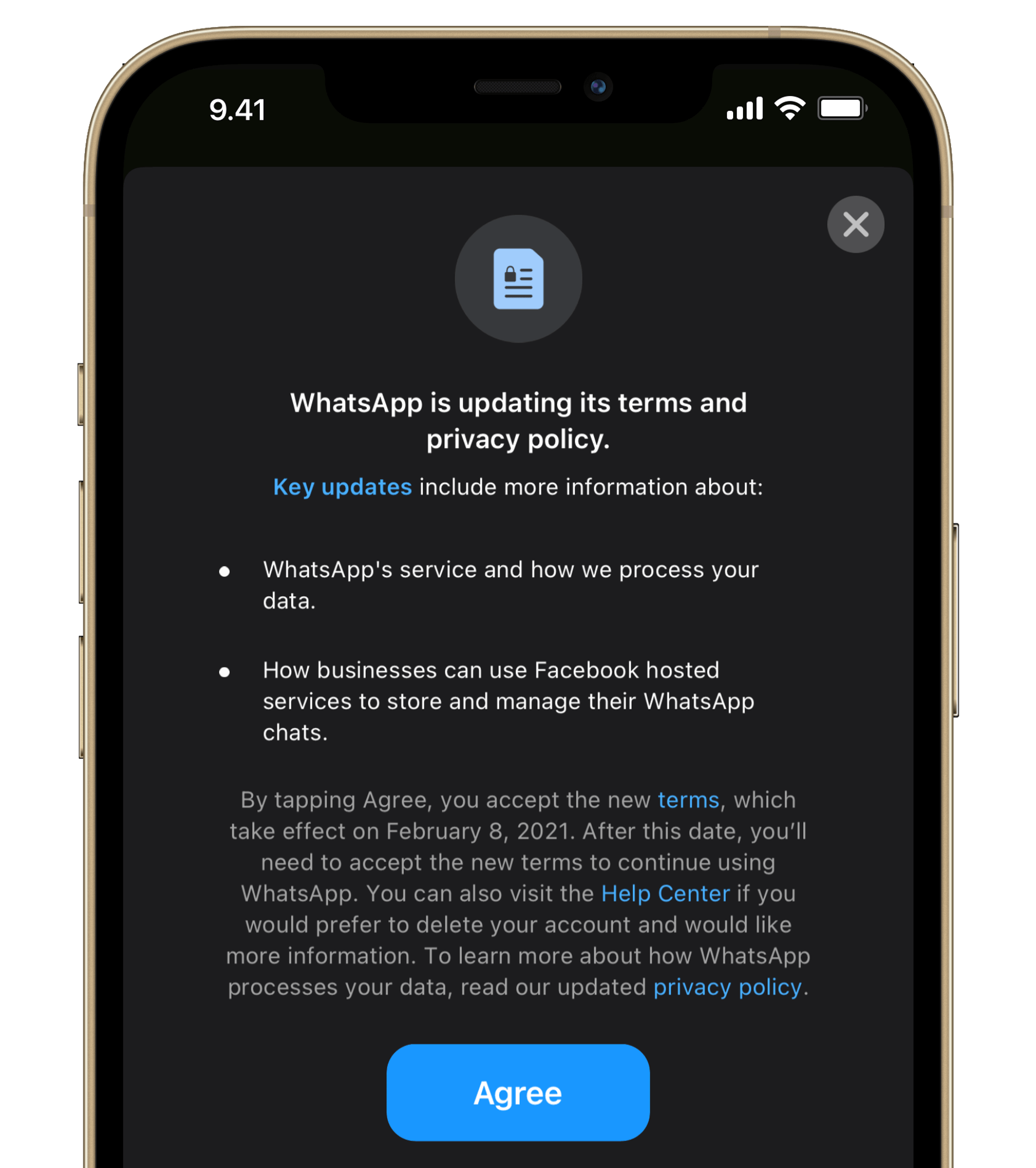What’s up, Signal?

“Don’t accept WhatsApp’s new policy,” said one of the messages that went viral on the platform. “Once you do, your WhatsApp account will be linked to your Facebook account and Zuckerberg can see all your chats.”
“In a few months, WhatsApp will launch a new version that will show you ads based on your chats,” said another one. “Don’t accept the new policy!”
Thousands of similar messages went viral on WhatsApp, the instant messaging app owned by Facebook, in the days that followed. Egged on by celebrities like Tesla CEO Elon Musk and whistleblower Edward Snowden, millions of people rushed to download WhatsApp alternatives like Signal and Telegram.
There was just one problem: From the 4,000-word policy, it was clear that the new changes applied only if people used WhatsApp to chat with businesses, not private conversations with friends and family.
Pranav Dixit | „WhatsApp Fueled A Global Misinformation Crisis. Now, It’s Stuck In One.”
WhatsApp fliegt (kräftig) auf die Nase, weil sich ihre Datenschutzbestimmungen ändern, während Nutzer und Nutzerinnen in Strömen zu Signal abwandern, die sich weigern Datenschutzbestimmungen aufzusetzen – überspitzt formuliert.
“The world needs products like Signal — but they also need Signal to be thoughtful,” said Gregg Bernstein, a former user researcher who left the organization this month over his concerns. “It’s not only that Signal doesn’t have these policies in place. But they’ve been resistant to even considering what a policy might look like.”
Interviews with current and former employees, plus leaked screenshots of internal deliberations, paint a portrait of a company that is justly proud of its role in promoting privacy while also willfully dismissing concerns over the potential misuses of its service. Their comments raise the question of whether a company conceived as a rebuke to data-hungry, ad-funded communication tools like Facebook and WhatsApp will really be so different after all.
Medienkompetenz bleibt unersetzlich.
Man kann (und sollte) zu einem besseren Messenger wechseln. Das befreit jedoch nicht vor der kritischen Auseinandersetzung mit diesem Anbieter.
Es ist verlockend, den unbequemen Fragen auszuweichen, indem man die Gespräche mit seinen Freunden einfach umzieht. Allerdings sollte man das aus den richtigen Gründen tun. Technisch betrachtet sind die Inhalte der Nachrichten unter allen Teilnehmer_innen bei beiden Kommunikationsdiensten nämlich Ende-zu-Ende verschlüsselt.
Unterschiede gibt es bei der Finanzierung, den verantwortlichen Personen, den Zukunftsideen sowie der Wahrnehmung und den Taten in der Öffentlichkeit. Alle diese Aspekte sind jedoch nicht festgeschrieben. Ganz im Gegenteil: Sie unterliegen einer laufenden Anpassung und (Neu‑)Interpretation.
Oder um es konkreter zu machen: Lauft (gerne) Facebook davon, aber folgt nicht unkritisch Signal (oder irgendeiner anderen Plattform).